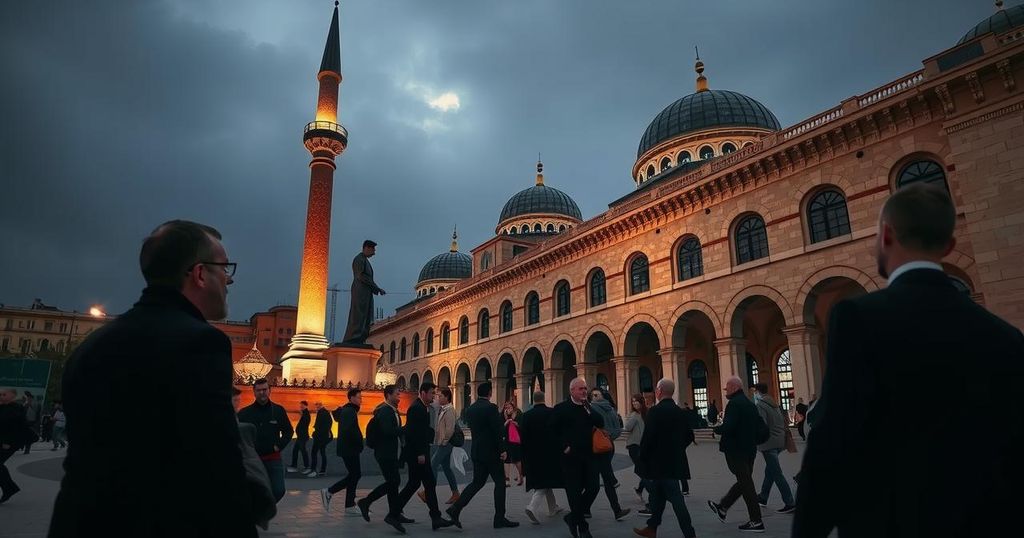Iran’s top diplomat, Abbas Araghchi, is set to visit Damascus in a show of support for President Bashar al-Assad after Islamist militants seized control of Aleppo, signaling significant challenges for the Syrian regime. The visit aims to affirm Tehran’s commitment amid a sudden offensive that has shifted power dynamics in northern Syria.
Iran is reinforcing its support for the Syrian regime as it faces one of its most significant challenges in years, particularly following the fall of Aleppo to Islamist militants. The Iranian Foreign Minister, Abbas Araghchi, announced his trip to Damascus to assure Syrian President Bashar al-Assad of Tehran’s backing. Following a week of rapid territorial gains by Hayat Tahrir al-Sham (HTS), Assad made calls to allies, affirming that his government could counter the insurgency with their assistance.
The situation in northern Syria has escalated dramatically, with HTS capturing Aleppo and displacing Syrian government forces, prompting fears among Assad’s foreign supporters. Russia and Iran have historically played crucial roles in backing Assad’s regime, leading to escalated tensions, particularly with Israel’s increased military actions in the region targeting Iranian interests. Despite these challenges, the regime has vowed to respond forcefully to the insurgency, with reports of counterattacks and continued military operations.
As the conflict unfolds, other factions, including Turkish-backed rebel groups and Kurdish militias, are rapidly advancing into areas evacuated by Syrian forces. This progression signifies a shift in control within regions long held by the government. Despite the turmoil, the Syrian defense ministry has claimed to bolster its defenses and initiate counteroffensives to reclaim lost ground, while airstrikes from both Syrian and Russian forces continue to target opposition-controlled areas, including devastating attacks reported in Idlib city, which have resulted in civilian casualties.
The Syrian civil war has been ongoing since 2011, precipitating a complex geopolitical struggle involving various domestic and international players. Bashar al-Assad’s regime has relied heavily on foreign military assistance, notably from Russia and Iran, to maintain its hold on power amidst growing insurgency and civil unrest. The recent loss of Aleppo is particularly significant, as the city has historically been a strategic stronghold and industrial hub for the Syrian government. The involvement of groups like HTS and the emergent threats from Turkish-backed factions highlight the shifting dynamics within the conflict. In this fragile landscape, countries such as the United States and Israel also navigate their interests, often complicating the situation further.
In conclusion, the ongoing conflict in Syria remains highly volatile as the Assad regime confronts substantial challenges from Islamist militants, exemplified by the recent loss of Aleppo. Iran’s support remains steadfast, as articulated by its foreign minister, highlighting the significant foreign involvement that shapes the conflict. The response from both regional allies and insurgent groups showcases the multifaceted nature of the war, underscoring the complex alliances and rivalries defining the current landscape. The consequences of this turmoil extend beyond Syria, inviting greater international scrutiny and competition for influence in the region.
Original Source: www.theguardian.com






